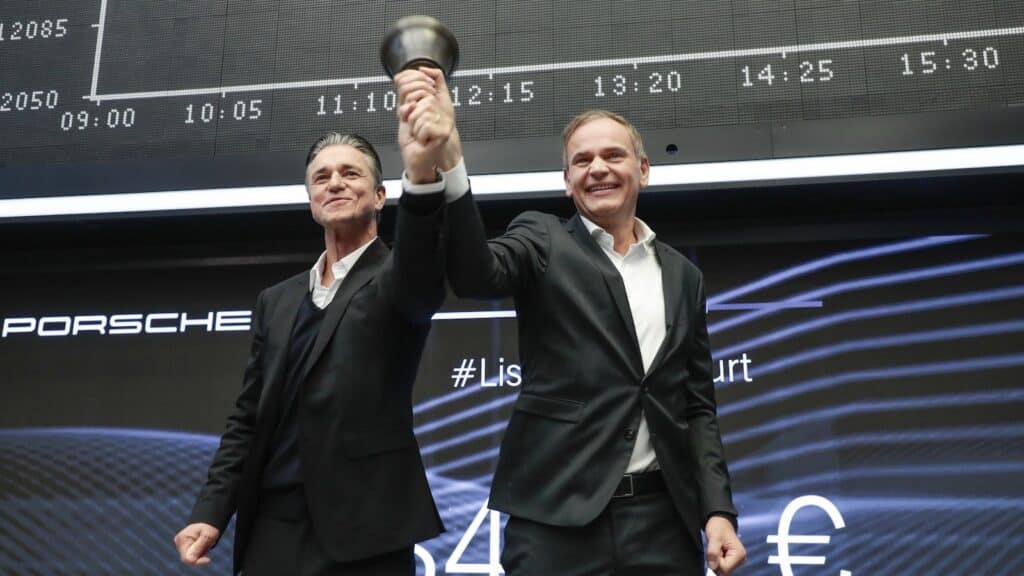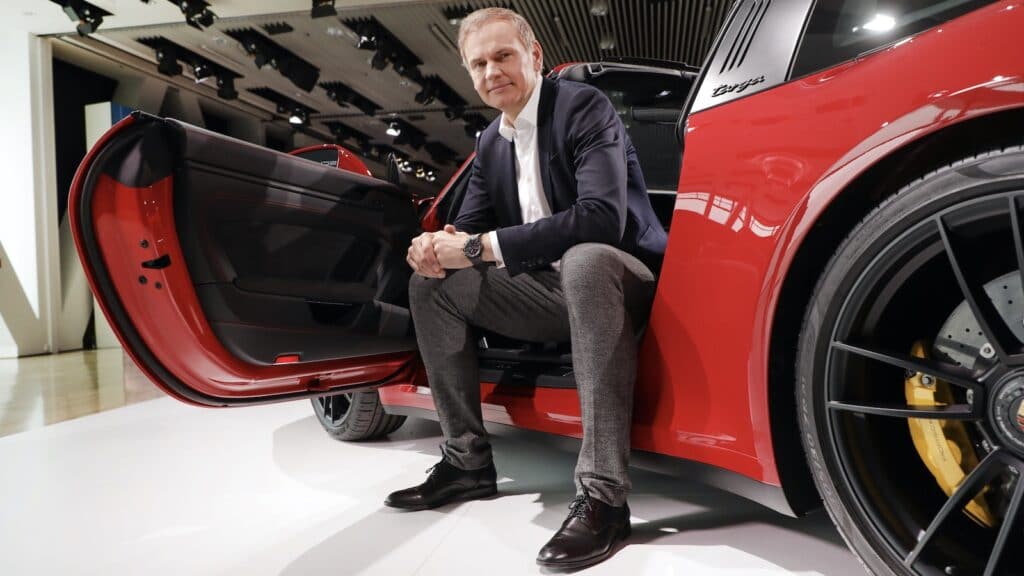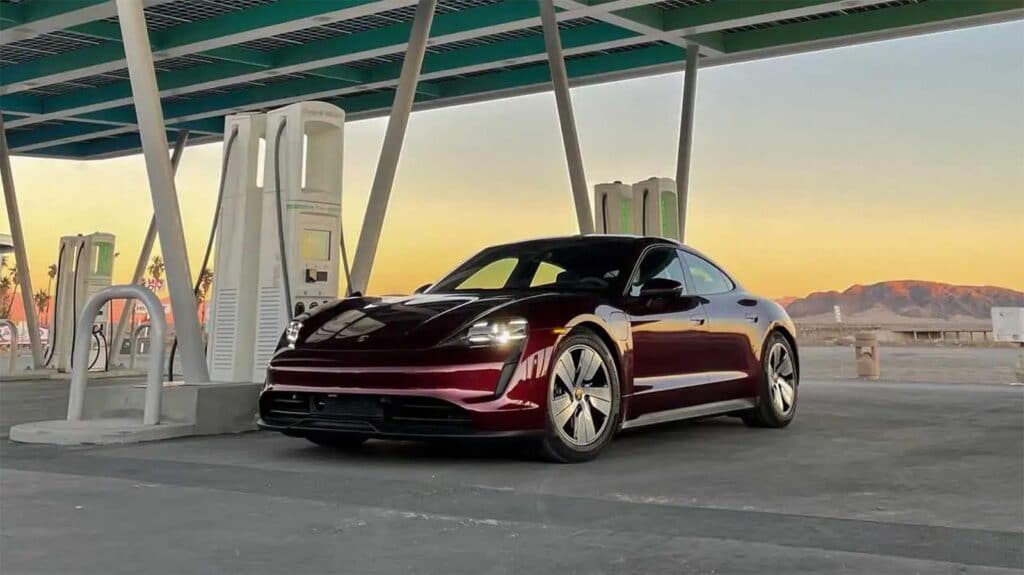The stock market may be in the doldrums as concerns about inflation, war and a possible global recession send investors looking for safer alternatives — but at least one new offering has taken off nearly as fast as one of its iconic sports cars.

Since launching an IPO on Sept. 29, shares of Porsche have surged nearly 10% — and that means the sports car company is now valued by investors at more than 83 billion euros, or $81 billion based on current exchange rates. That towers over the market capitalization of its former parent Volkswagen AG at 78 billion Euros, or $76 billion.
Shares of Porsche — which trades under the ticker P911, honoring its most famous product — have seesawed a bit since the spinoff late last month. That’s no surprise, according to industry analysts, who have watched nervous traders often respond erratically to the latest headlines and rumors.
Keeping things stable
“Inflation data from Europe and the United States, recent worries over energy supply in Europe and the escalation of the war in Ukraine last Thursday led to fluctuations which made small-scale stabilization measures necessary,” a spokesperson for Volkswagen told Reuters news service.
But while dipping briefly below the IPO price this past Monday, Porsche shares have barely looked back. As of the end of the day on European markets, those shares settled in at just over $92, a nearly 12% gain for original buyers.
Funding for an “electric future”

Porsche has indicated it plans to use the cash raised by the IPO to help fund an increasingly aggressive shift from conventional gas and diesel products to those using battery power. It currently offers the Taycan sports car, its first long-range EV. It will follow with an all-electric version of the small Macan SUV.
“The future of Porsche is electric,” CEO Oliver Blume said last March, during an event outlining the automaker’s EV strategy. “In 2030, the share of all new vehicles with an all-electric drive should be more than 80 percent.”
It is expected to follow Macan with battery-powered versions of the small Boxster and Cayman sports cars, and then the four-door Panamera. It has suggested that the iconic 911 will be one of the last of its product lines to go completely electric.
Porsche now has the 25th highest market cap among all European companies.
Payback time

At the current figure, this not only lets Porsche thumb its nose at VW — which took control of the smaller manufacturer in July 2009 — but it positions the Stuttgart-based automaker as the fifth most valuable publicly traded company in Germany. It lags behind only Linde, SAP, Deutsche Telekom and Siemens.
By comparison, Mercedes-Benz is the third most valuable European automaker. Last year, Mercedes sold 2.093 million vehicles worldwide. Volkswagen’s various brands sold 6.6 million — a figure that included 301,905 of its sports car and high-performance SUVs.
The IPO saw a total of 911 million shares offered, with those evenly divided into preferred and ordinary shares. The actual number purchased between Sept. 29 and Oct. 4 only accounted for 11% of the total trading volume. Meanwhile, up to 14.85 million shares, now worth more than $1 billion, will be available through a “greenshoe” option. That would help stabilize the stock, experts explained.
Most auto stocks are struggling
Porsche is just one among several automakers that have launched IPOs over the last several years, though most others have been startups like Atlis, an electric truck manufacturer that has had a rocky start since going public last month. Others, such as Lordstown Motors and Nikola, have stumbled badly. But, with the exception of Tesla, and now Porsche, it’s been a tough time for the entire auto industry this year.







